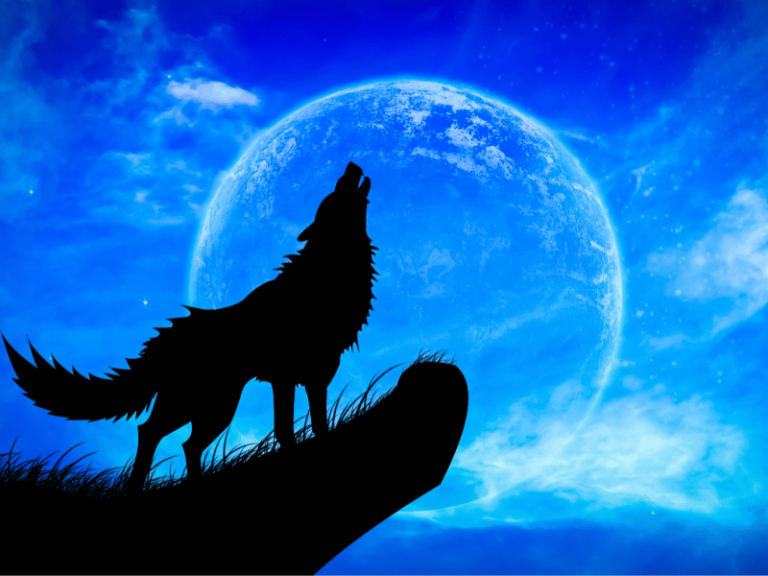In mountain villages or pastoral areas, especially late at night when it’s quiet, one often hears the howling of wolf packs. Particularly in pastoral regions, shepherds are extra cautious, fearing the cruel and greedy wolves that could harm their flocks. Why do wolves love to howl at night?
In the world of animals, each species has its own habits and behaviors that have developed over long periods of time.
Wolves are large carnivorous mammals primarily hunting small animals such as rabbits, wild chickens, deer, rodents, and sometimes domestic animals and crops like melons and vegetables. Wolves have a large appetite and can consume several tens of pounds of meat in one sitting. They also have a strong endurance for hunger, sometimes enduring weeks of starvation during winter without losing their strength. During the day, the large gray silhouette of a wolf cannot escape human eyes, so wolves have naturally become nocturnal animals. Hungry wolves often come out in groups after dusk to search for food, emitting low howls as they move.
The vocalizations of animals are often closely related to their reproductive behaviors. For instance, during mating seasons, deer often emit specific calls to attract mates, and similar behaviors are observed in cats. Wolves howl at night because they are inherently nocturnal animals. When wolves need to venture out at night, they often communicate with each other through howling, with mother wolves calling pups, and male wolves calling females, assembling into packs before going out to hunt. Additionally, during the mating season, wolves also howl to locate potential mates.
Does the howling of wolves at night scare away other small animals? Certainly, upon hearing the howls of wolves, small animals become immediately alert and avoid the area. However, once a wolf detects a potential prey, it becomes fully focused, its eyes gleaming with ferocity, and it swiftly and silently strikes at the prey. In such encounters, smaller animals find it difficult to escape the pursuit of a wolf.
While wolf fur can be utilized, their predation on domestic and wild economic animals is significant, leading humans to view them as harmful creatures.

